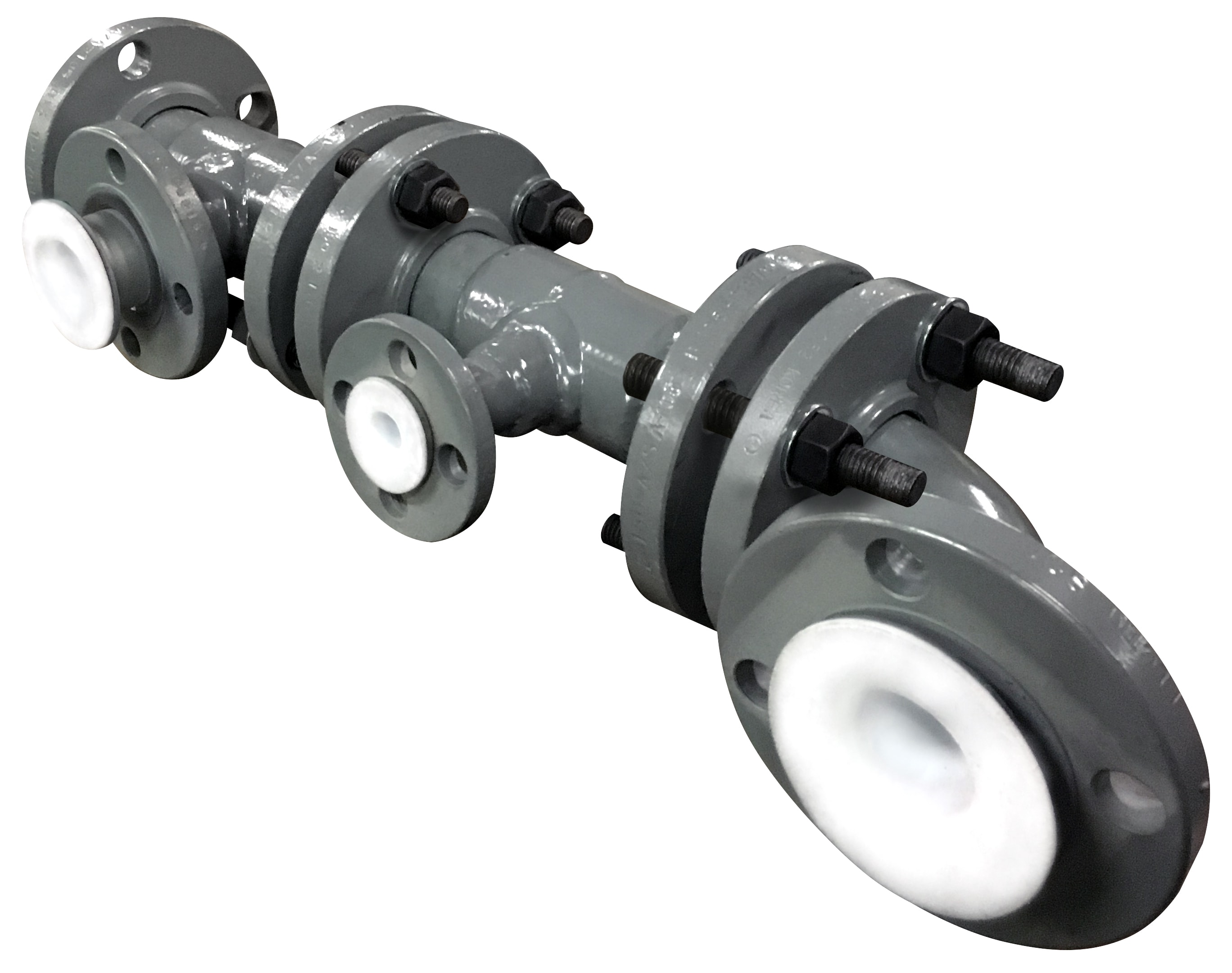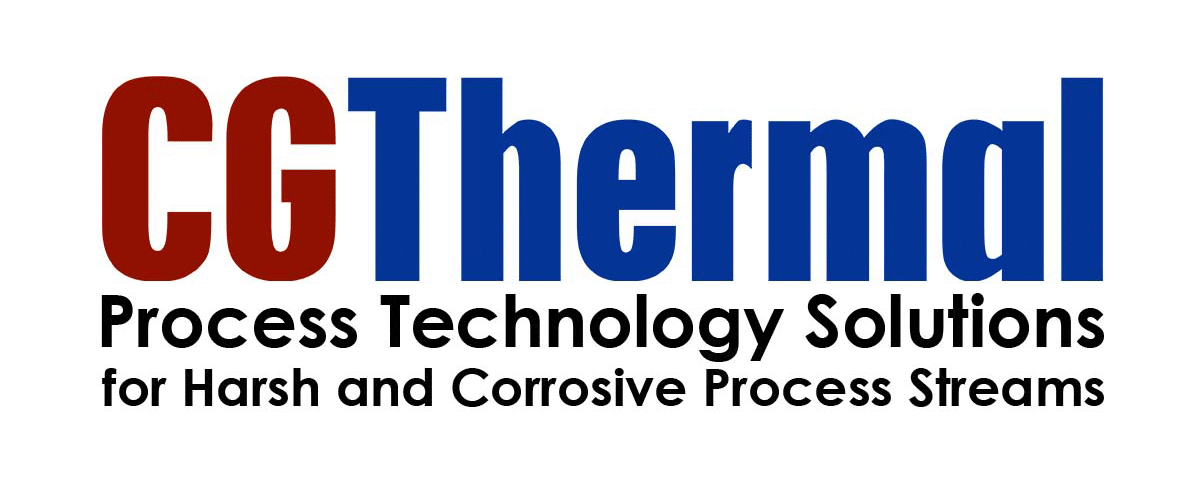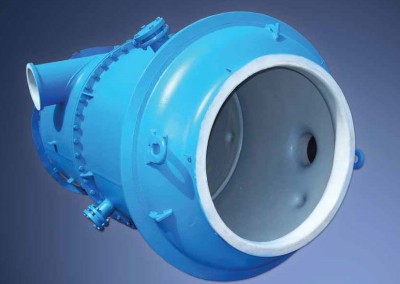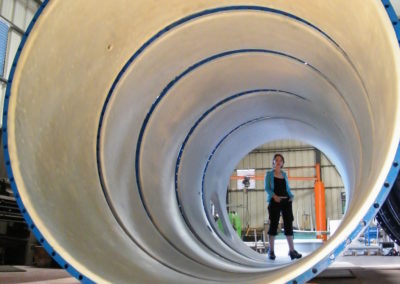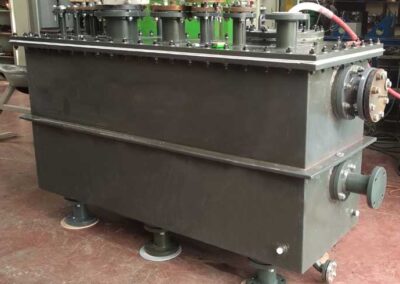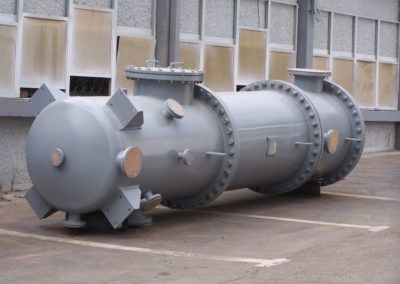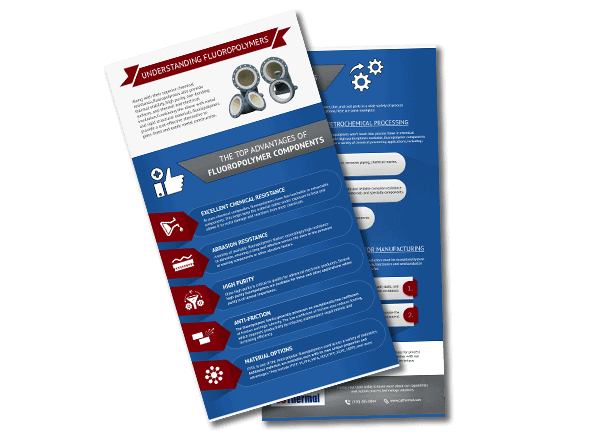Fluoropolymers
Less Downtime. Lower Maintenance.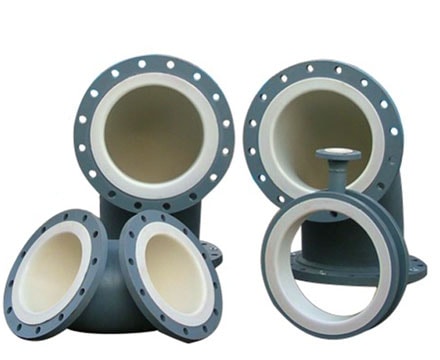
CG Thermal provides a full product line of fluoropolymers and lined components that complement our Impervite® graphite and Umax ceramic heat exchangers. We specialize in developing custom-designed components for highly corrosive processes and environments. We offer an expansive array of fluoropolymer materials and production methods, as well as the expertise to select the most appropriate system materials and design for any application.
Along with their superior chemical resistance, fluoropolymers also provide thermal stability, high purity, non-bonding surfaces, and thermal and electrical insulation. Combining the above with metal and rigid structural materials, fluoropolymers provide a cost-effective alternative to glass-lined and exotic metal construction.
Since its invention in 1938, manufacturers have developed a variety of different fluoropolymer components, each ideal for highly specialized environments or applications. Some of the most common types of fluoropolymer products used in the metals and chemical processing industries include Homopolymers, Copolymers, and Fluoroelastomers.
Features and Advantages of Fluoropolymers
Fluoropolymer components offer many beneficial properties that provide solutions for harsh or highly sensitive process applications. Here are the top four reasons why our customers typically choose fluoropolymer products:
- Excellent chemical resistance. As pure chemical composites, fluoropolymers have few leachable or extractable components. This helps keep the material stable under exposure to heat and allows it to resist damage and reactions from most chemicals.
- Abrasion resistance. A variety of available fluoropolymers feature exceedingly high resistance to abrasion, ensuring a long and effective service life even in the presence of moving components or other abrasive factors. A few examples of highly abrasion-resistant fluoropolymers include XLPE, ETFE, and ECTFE.
- High purity Ultra high purity is critical to quality for advanced electronic producers. Several high-purity fluoropolymers are available for these and other applications where purity is of utmost importance, including PTFE, PTFE-M, and PFA.
- Anti-friction. The fluoropolymer family generally possesses an exceptionally low. coefficient of friction and high lubricity. The low coefficient of friction also reduces fouling, which improves productivity by reducing maintenance requirements and increasing efficiency.
Combining these advantages with metal and rigid structural materials, fluoropolymers offer an affordable alternative to glass-lined materials and exotic metals.
Fluoropolymers can also be formulated to address project-specific criteria. Conductive fluoropolymers can be used in the transport of products with the potential to produce static charge. Fluoropolymers that are melt-processed can be used to rotoline, creating a mechanically and chemically bonded liner that can withstand vacuum conditions.
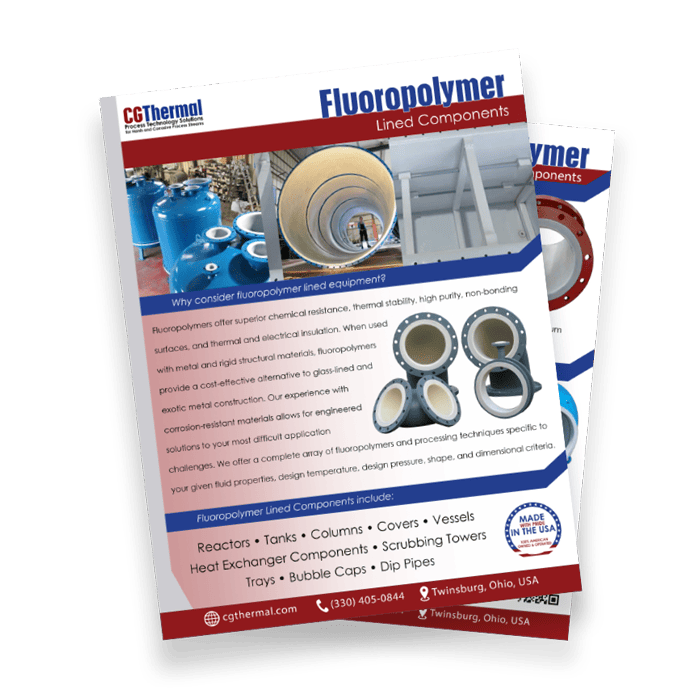
CG Thermal will work with you to provide the best suited application technique using the most appropriate fluoropolymer to meet the specific needs of the application. Our team of industry experts is available to provide a custom designed solution for your unique requirements.
Applications of Fluoropolymer Linings
Fluoropolymers can protect, line, and coat parts in a wide variety of process applications. Here are some examples:
Chemical and Petrochemical Processing
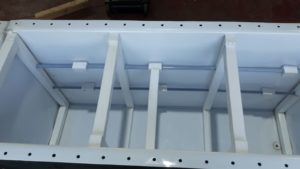 As a relatively inert substance, fluoropolymers won’t leach into process flows in chemical and petrochemical applications. With multiple high-purity options available, fluoropolymer components provide a cost-effective and ideal choice for a variety of chemical processing applications, including:
As a relatively inert substance, fluoropolymers won’t leach into process flows in chemical and petrochemical applications. With multiple high-purity options available, fluoropolymer components provide a cost-effective and ideal choice for a variety of chemical processing applications, including:
- As an alternative to glass linings in corrosive piping, chemical reactor, and acid storage applications
- Encapsulating steel to provide strength and reliable corrosion resistance for dip tubes or feed pipes in highly corrosive environments.
- Lining vessels and containers for transport
Electronics and Semiconductor Manufacturing
All materials used in the fabrication of electronics and semiconductors must be exceptionally pure to ensure that these delicate components will function properly. Electronics and semiconductor manufacturers use fluoropolymers for:
- Liners for high-purity, corrosion-resistant (liners can be designed to withstand vacuum requirements)
- Seamless linings produce by the rotolining process are employed to minimize the potential for breaches
Understanding Your Options for Custom Designed Components
At CG Thermal, we have a thorough understanding of the benefits and proper use cases for all types of fluoropolymers. Our experts help every customer to select the most appropriate fluoropolymer option for their needs.
PTFE is one of the most popular fluoropolymers used across a variety of industries. Its most recognizable physical attribute is a waxy surface that’s resistant to damage or degradation from heat and burning. The material is very viscous in its raw state, so it’s well suited to extrusions or linings but not as ideal for injection or blow molding.
PTFE has excellent chemical resistance and can be sterilized. Because of the inert fluorine in the material structure, the polymer won’t react to most chemicals and features high biocompatibility. Like other fluoropolymers, PTFE has a crystalline form. While this makes pure PTFE brittle, fillers may be added to alter this property when the application requires.
Aside from PTFE, we offer a variety of alternative fluoropolymer material options, including:
- PTFE-M. Modified PTFE suitable for high-purity applications, exceptional non-stick properties, superior corrosion resistance, high thermal stability, lower permeation rates, better mechanical properties
- PFA. Suitable for high-purity applications, non-stick properties, superior corrosion, resistance lower permeation rates, high thermal stability, long flex life
- MFA. Non-stick properties, lower permeation rates, high thermal stability, better surface smoothness, and better corrosion resistance
- FEP. Exceptional non-stick properties, high thermal stability
- ETFE. Lower permeation rates, high thermal stability, outstanding abrasion and tear resistance, better mechanical properties
- ECTFE. High thermal stability, outstanding abrasion resistance, better mechanical properties
- PVDF. Lower permeation rates, outstanding abrasion resistance, better mechanical properties
- PP. Very good abrasion resistance, low cost material
- XLPE. Highest abrasion resistance available, low cost
- HDPE. Low cost material
Fluoropolymer Technologies from CG Thermal
CG Thermal specializes in manufacturing high-quality fluoropolymer linings, coatings, and surfaces for industrial parts that will face extreme environmental conditions. Our expansive portfolio consists of both standard and custom fluoropolymer components, as well as diverse processing techniques such as:
- Loose liners for simple shaped structures with positive pressure conditions. For larger structures, components can be joined with our fluoropolymer welding system.
- Bonded liners for structures with simple or complicated shapes and vacuum or positive pressure conditions.
- Roto-lining for structures with complicated shapes under vacuum or positive pressure conditions, with no welds or seams. Provides maximum permeation resistance and is field repairable.
- Liquid and powder coatings for structures with complicated shapes under vacuum or positive pressure conditions, with no welds or seams, where permeability is not a great concern.
After selecting the appropriate material and processing technique, the required wall thickness is determined. If required, liners will be chemically or mechanically bonded to the steel substrate, or mechanical devices to hold the liners in place might be recommended. When permeation is of particular concern, a two layer system may be utilized.
This detailed attention to design has resulted in an impressive record of lined products outlasting their anticipated service life under these most rigorous conditions. Along with our production capabilities, we thoroughly inspect and test our products to ensure that hardness levels, spark resistance, and other physical properties meet our high standards.
Contact our team today to learn more about our capabilities and custom process technology solutions.
